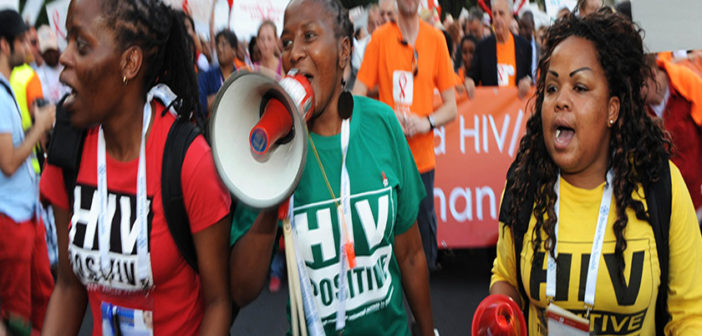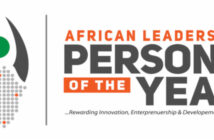By Laurel Sprague
Perhaps the single most important characteristic of the AIDS response – one that holds lessons about efforts to address other health challenges – is the central contribution of people living with HIV and those in the communities who have borne the brunt of HIV, including LGBTI people, sex workers, and people who use drugs. For no other health problem has the involvement of affected individuals played so vital a role.
The emphasis on empowerment and autonomy of people living with HIV stretches back to the beginning of the AIDS response: in 1983, the Denver Principles condemned efforts to label people living with HIV as passive victims. In Paris in 1994, 42 heads of state and national representatives endorsed the Greater Involvement of People Living with HIV/AIDS, or GIPA.
GIPA requires the meaningful involvement of people living with HIV in the programmatic, policy and funding decisions and actions that affect our lives. This is a matter of democratic principle, calling on the leaders and institutions that shape the conditions of our lives, to do so based on our voices, experiences, needs, and desires.
But in addition to the ethical imperative of involving people living with HIV in decisions that affect us, there are also pragmatic reasons for GIPA. People living with HIV and members of LGBTI and sex worker communities developed the earliest “safe sex” programmes, and people who use drugs invented “safe injection” programmes; together, our communities pioneered the creation of the first HIV support and service organizations across the world. Advocacy spearheaded by people living with HIV changed how new medicines are evaluated and approved, helping usher in the plethora of high-quality HIV treatments that have saved many millions of lives.
More recently, people living with HIV helped formulate and pilot such innovations as multi-month antiretroviral drug prescriptions, community distribution of HIV medicines, HIV adherence clubs, and monitoring of ARV procurement and stocks outs. These innovations – novel when they were first developed – have now been enshrined in national and international HIV service guidelines and are helping accelerate progress to reduce new HIV infections, HIV-related illness, and HIV deaths.
In short, making room for the leadership of networks of people living with HIV is not only right, it is smart. As leaders in our own communities and networks, people living with HIV know how best to reach those who are marginalized and serve as essential sources of feedback on how new programmes or policies are being received by their peers. Because our lives and our community’s well-being are at stake, people living with HIV are also uniquely positioned to build demand – with urgency – for HIV prevention and treatment services.
The persistence of stigma, discrimination and social injustice is among the greatest of all challenges facing the AIDS response. Here, too, people living with HIV are a critical resource. The visibility of people living with HIV pierces the silence that often surrounds HIV and reminds people of all walks of life of the humanity and human rights of those affected by the epidemic. People living with HIV have crafted responses to challenge the stigma, discrimination and other human rights violations that we face using approaches that are increasingly taken up within National AIDS Strategies. One key example is the PLHIV Stigma Index, a research programme led by and for people living with HIV to measure and respond to discriminatory treatment in a variety of settings and to build the resilience and solidarity needed for structural social change.
In countries across the globe, people living with HIV are leading and informing national AIDS responses. People living with HIV participate on national AIDS coordinating bodies and in Country Coordinating Mechanisms for the Global Fund. People living with HIV also serve on the governing bodies of international bodies, such as UNAIDS, Global Fund and UNITAID.
Too often, though, the involvement of people living with HIV remains tokenistic or partial. A fundamental principle of meaningful engagement is that people living with HIV select our own representatives to decision-making and advisory bodies. Realization of GIPA requires the thorough, meaningful engagement of people living with HIV across the breadth of the AIDS response – in participatory planning and budgeting, in policy development, in health systems monitoring, in community-led services, and on community advisory boards. Far too often, even in countries that embrace GIPA, people living with HIV lack the financial resources needed for the time, travel, and other expenses incurred for full participation in HIV-related decision making.
Through over three decades, the struggle for greater involvement of people living with HIV has highlighted the danger that the AIDS response can sometimes exclude groups or leave people behind. It must be a non-negotiable principle for PLHIV networks to insist on a place within our networks for all people living with HIV, which means addressing the harmful gender norms, homophobia, transphobia, racism, and bias against sex workers, people who use drugs, migrants, and those who have been incarcerated, that we bring from the wider society. And let’s be clear, when we talk about all people living with HIV, we must include people born with HIV and those who acquire it later – sometimes much later; gays, lesbians, bisexuals, and heterosexuals; transgender and cisgender women and men; people from rural and urban areas and from all backgrounds and experiences. What we have learned from the substantial yet still-incomplete progress towards full adherence to GIPA is the importance of standing together to insist that the HIV response meaningfully engage – across HIV status – with young people – especially from key populations, women and girls, gay men and other men who have sex with men, sex workers, people who use drugs, transgender people, migrants and prisoners.
More than 20 years have passed since the Paris Declaration formally elevated GIPA as a guiding approach for the AIDS response. Given all we have learned about what has worked in implementing GIPA and where we continue to fall short, now is a good time for a collective review of efforts and a refresh of the GIPA approach, by standing together in solidarity to ensure the relevance of and commitment to GIPA in the era of sustainable development.
Laurel Sprague is the Executive Director of The Global Network of People Living with HIV (GNP+)




